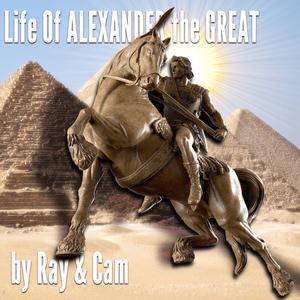
Life Of Alexander The Great
Cameron Reilly & Ray Harris
Ray & Cam Present The Life Of Alexander The Great.
- 1 hour 6 minutesRenaissance Episode 1 – Constantine The Great
Our new series, The Renaissance Times, launched on Dec 24, 2017. Here’s the first episode! Go check out the rest of the series at therenaissancetimes.com.
At its peak, the Library of Alexandria was estimated to contain somewhere in the order of 500,000 books on philosophy, science, medicine, history, tragedy, comedy, rhetoric and politics.
Across the Roman empire, private and public libraries contained copies of these books. They were read, studied and appreciated. Of course, literacy was a luxury that not all citizens of the empire received. It was contained mostly to the upper classes. But those upper classes had a high estimation of the value of learning and education. They also accepted the worship of many gods in many different ways and they accepted debate and discourse as an important part of being civilized.
But as the Western Roman Empire decayed, partly as a result of corruption, partly by division, partly by Christian influence, and partly by a combination of famine, plague and invasion by illiterate Germanic tribes, most of these books were forgotten and lost. Today we have partial copies of perhaps a one or two percent of them – and many of those are pure luck, as they were written over by Christian scribes and modern scientific techniques has managed to resurrected the ink from two millennia ago.
With the rise of Christianity, it became unfashionable and unprofitable even for the upper classes to read anything other than the books supported by the Christian church – the Christian bible, scriptures, analysis of the bible and scriptures and the miscellaneous writings of Christian scholars. Sure – there were some monks and scholars in some parts of the world, notably Ireland and the Eastern Roman Empire. who still appreciated the ancient works and they kept copies of some of them. And as the Eastern Roman Empire became the Islamic Caliphate, they too valued these ancient texts. But the majority of Christian monks – the only people left who copied books after the rise of the Christian empire – didn’t care to spend time or effort copying pagan texts. When each book needed to be hand-copied, a laborious process that might take a year to copy a single book – why would monastic superiors choose for their monks to spend that year copying a pagan book when they could be copying a Christian one?
Gradually, people lost interest in the writings of the ancients, with a few exceptions. And with that loss of interest, the vast majority of the books themselves were lost to Western Europe.
Some through tragedy, some through deliberate and wanton destruction of anything that didn’t fit neatly into the Christian worldview. But mostly just through neglect.
Ancient texts were typically written on papyrus, made from the pith or centre tissue of the papyrus plant, which is delicate. As a rule of the thumb, we can assume that a scroll had to be copied every century. If parchment was used, replacement could take place less frequently. However, preparing a skin and making parchment was extremely expensive. Most texts were, therefore, written on papyrus and subject to decay and disappearance. If there were many copies of the same text, the chances of survival were greater, but professional writers were expensive and texts usually circulated in small numbers. A surprisingly great number of ancient texts has survived in only one copy, which shows how vulnerable the process of transmission was. Even they couldn’t withstand the ravages of time, especially when they were discarded and forgotten about in the musty depths of cold, damp monasteries, victims of bookworms and mould.
Many survived for centuries in Eastern Europe and the new Islamic empire, but these too were lost eventually, destroyed by the wars between rulers or by invasions by people like Genghis Khan.
Following the abdication of the 16 year old Romulus Augustus in 476, and the subsequent fall of the Western Roman Empire, the empire had no single ruler and new ones emerged from the local aristocracy, military leaders, the church and a new class of wealthy bankers. The unity of the old empire dissolved and they were the victims of invasions by illiterate Germanic tribes who had little interest in the teachings of the ancients. This was accompanied by a long period of economic difficulties caused in part by conflicts between the new rulers.
Without the larger economy and administrative infrastructure of the Empire to sustain them, trade systems, large public works and educational systems all collapsed, contracted into local versions or died out in western Europe. And waves of invasions by various Germanic peoples, Avars, Moors, Magyars and Vikings made mere survival a higher priority than things like preserving books or maintaining road systems.
And so the western Roman empire entered what the 17th century historian Cardinal Caesar Baronius called, in Latin, saeculum obscurum – “the dark ages”.
Before him, in 1343, one of the individuals who himself played a major role in ending the dark ages, Petrarch, wrote that history had two periods: the classic period of Greeks and Romans, followed by a time of darkness in which he saw himself living. He wrote: “My fate is to live among varied and confusing storms. But for you perhaps, if as I hope and wish you will live long after me, there will follow a better age. This sleep of forgetfulness will not last for ever. When the darkness has been dispersed, our descendants can come again in the former pure radiance.”
The dark ages are more often referred to by historians these days as the Western European Early Middle Ages and roughly span the 6th to 14th centuries.
Starting in Florence in the 14th century, a new era began to emerge in the west. People like Petrarch, who re-discovered our old friend Cicero’s lost letters, and the new humanists – who valued the study of classical antiquity – ushered in a rebirth, or as it was later called in French a “renaissance” – which is a term that only came into use in the 19th century – a rebirth of the arts, the sciences, philosophy, theatre, and what it means to be human. Their interests were not only about how to get to heaven but how to live today. They agreed with the ancient Greek philosopher Protagoras, who said that “Man is the measure of all things.” Men like Poggio Bracciolini scoured the libraries of Europe in search of works by such Latin authors as Cicero, Lucretius, Livy and Seneca. Copies of surviving books – a mere fraction of what had once existed – were eventually retrieved from Eastern Europe and the Muslim empire and brought back to the west by men in search of knowledge.
In the 15th century, the Renaissance spread rapidly from its birthplace in Florence to the rest of Italy and soon to the rest of Europe.
The renaissance period saw the rise, not only of a renewed interest in the past, but of a new generation of artists and thinkers who shaped the new world, like Da Vinci, Michelangelo, Shakespeare, Cervantes and Machiavelli, Copernicus, Galileo, and Francis Bacon, Luther, Calvin and Christopher Columbus. Gutenberg invented the printing press, which meant books were, for the first time, readily available to the lower classes. Huge battles were fought between popes, kings and wealthy merchants, some of whom became popes and kings. We have the Medici, the Borges, the Visconti and the Sforza.
It was a time when the unknown painter became “the artist”. When the unknown builder became “the architect”.
Of course, This new era of free thinking wasn’t appreciated by everyone, as it challenged the orthodoxy – leading to the Inquisition and the Reformation, which in turn lead to centuries of religious wars between Catholics and Protestants.
Who these people were – what they believed – what they accomplished – and how it affects the modern world – these are the stories we are going to tell in our new series – The Renaissance Times.
The post Renaissance Episode 1 – Constantine The Great appeared first on Alexander.
9 March 2018, 6:25 am - 4 minutes 36 secondsSubscribing To Renaissance
The Dark Ages are ending!
As you may have realized, we published our very last Alexander episode last week!
Now some of you might be wondering what to do now?Well, I had hoped I’d be able to just transfer your Alexander subscriptions over to the new series, but, alas, the entrails from our last sacrifice portended bad omens in that regard.
So instead, you have a few options. Please read carefully.
1. If you’re a new monthly subscriber to Alexander, or you haven’t finished the series yet, just keep your subscription running and you’ll be fine. Nothing changes. If you also want to subscribe to the new Renaissance series and get in on the ground floor this time, just click here and register!
2. If you are on one of our monthly subscriptions, and you’ve finished with the Alexander series, you can cancel your subscription by clicking here and then click here and register for the new series.
3. If you are one of our annual subscribers on Alexander, and you want to get a credit on the new series, just email Cam and he’ll sort it out for you with a pro rata credit. Or if you want to donate your remaining credit and just sign up again fresh, of course you can do that to, click here and register for the new series.
Hopefully that’s all pretty simple but if you have any questions, don’t hesitate to drop me a line.
One thing to note: we won’t have the first Renaissance episode out until late December, but to test the subscription, I’ve thrown up an advertisement for our 2018 tour of Europe! Slots are nearly full, so don’t miss out!
Amor,
Cameron & RayThe post Subscribing To Renaissance appeared first on Alexander.
27 November 2017, 11:16 am - 1 hour 22 minutes#122 – The Last Show
Well, here we are. Three years, 122 episodes, some of which were a LOT longer than an hour, so probably around 130-140 hours of story. We started with 14 episodes covering the rise of Philip II of Macedon, aka Big Daddy Phil: his military innovations, his marriages, his cunning, the Battle of Chaeronea, and his assassination in 336 BCE. We then carried on with 44 episodes about his eldest son, Alexander III: shutting down rebellions across Greece, his journey of conquest across Asia Minor, Egypt, Syria, Persia and India, his tragic early death. And we ended with 64 episodes covering the Wars of the Successors, how they divided Alexander's empire amongst themselves and then spent 40 years trying to unify it again, all of them ultimately failing, one by one. And now we are at the end, as the second and third generation of Macedonian kings, none of whom had even been born when Alexander died, settled for having a kingdom.
HOW TO LISTEN
If you're already a subscriber, you can listen to the show below or subscribe through iTunes or any podcast player.
If you're not a subscriber, please register.
If you want to listen to the first episode for free, get instructions here.
Sign Up or Login to listen to our premium episodesIf you haven't already, join our Facebook page and you'll be in the running to win prizes in our regular “Share The Love” and other competitions.
If you'd like to write a funny or insightful review on iTunes, this is the link.
The Music: We want to get down on our knees and worship the amazing and talented composer who offered us the use of one of his amazing tracks, “Hero”, as our theme music: Jofre Horta. He's already a big deal in the composing world but he's going to be even bigger – and you can say you heard him first on our little show! Listen to his whole album on Spotify or iTunes.
The post #122 – The Last Show appeared first on Alexander.
23 November 2017, 9:19 am - 1 hour 18 minutes#111 – Ian Worthington
Professor Ian Worthington joins us again to talk about new book about Ptolemy!
HOW TO LISTEN
If you're already a subscriber, you can listen to the show below or subscribe through iTunes or any podcast player.
If you're not a subscriber, please register.
If you want to listen to the first episode for free, get instructions here.
Sign Up or Login to listen to our premium episodesIf you haven't already, join our Facebook page and you'll be in the running to win prizes in our regular “Share The Love” and other competitions.
If you'd like to write a funny or insightful review on iTunes, this is the link.
The Music: We want to get down on our knees and worship the amazing and talented composer who offered us the use of one of his amazing tracks, “Hero”, as our theme music: Jofre Horta. He's already a big deal in the composing world but he's going to be even bigger – and you can say you heard him first on our little show! Listen to his whole album on Spotify or iTunes.
The post #111 – Ian Worthington appeared first on Alexander.
18 August 2017, 6:01 am - 1 hour 12 minutes#96 – The Lost Testament of Alexander with David Grant
David Grant has just published a truly unique and fascinating book called “In Search of the Lost Testament of Alexander”.
We recently had him on to talk us through his theory.
<
HOW TO LISTEN
If you're already a subscriber, you can listen to the show below or subscribe through iTunes or any podcast player.
If you're not a subscriber, please register.
If you want to listen to the first episode for free, get instructions here.
Sign Up or Login to listen to our premium episodesIf you haven't already, join our Facebook page and you'll be in the running to win prizes in our regular “Share The Love” and other competitions.
If you'd like to write a funny or insightful review on iTunes, this is the link.
The Music: We want to get down on our knees and worship the amazing and talented composer who offered us the use of one of his amazing tracks, “Hero”, as our theme music: Jofre Horta. He's already a big deal in the composing world but he's going to be even bigger – and you can say you heard him first on our little show! Listen to his whole album on Spotify or iTunes.
The post #96 – The Lost Testament of Alexander with David Grant appeared first on Alexander.
16 March 2017, 1:35 pm - 1 hour 9 minutes#77 – JAMES ROMM
James Romm is an author, reviewer, and the James H. Ottaway Jr. Professor of Classics at Bard College in Annandale, NY.
After getting his B.A. in Classics from Yale, he went on to earn a Ph.D. from Princeton in 1988. He has taught Greek language, literature and history at Bard College since 1990.
He is also the author of GHOST ON THE THRONE, one of the best books on the Wars of the Successors.
HOW TO LISTEN
If you're already a subscriber, you can listen to the show below or subscribe through iTunes or any podcast player.
If you're not a subscriber, please register.
If you want to listen to the first episode for free, get instructions here.
Sign Up or Login to listen to our premium episodesIf you haven't already, join our Facebook page and you'll be in the running to win prizes in our regular “Share The Love” and other competitions.
If you'd like to write a funny or insightful review on iTunes, this is the link.
Want to leave us a short voicemail that we might (or might not) play on the show?
https://www.speakpipe.com/RayandCamThe Music: We want to get down on our knees and worship the amazing and talented composer who offered us the use of one of his amazing tracks, “Hero”, as our theme music: Jofre Horta. He's already a big deal in the composing world but he's going to be even bigger – and you can say you heard him first on our little show! Listen to his whole album on Spotify or iTunes.
The post #77 – JAMES ROMM appeared first on Alexander.
28 September 2016, 6:14 am - 1 hour 18 minutes#28 – The Battle Of Gaugamela, Part I
In this episode Alexander III of Macedon marches all the way from Alexandria in Egypt to Gaugamela (near Mosul in modern day Iraq) where Darius of Persia is waiting for him with the biggest army the world had ever seen. And elephants.
HOW TO LISTEN
If you're already a subscriber, you can listen to the show below or subscribe through iTunes or any podcast player.
If you're not a subscriber, please register.
If you want to listen to the first episode for free, get instructions here.
Sign Up or Login to listen to our premium episodesIf you haven't already, join our Facebook page and you'll be in the running to win prizes in our regular “Share The Love” and other competitions.
If you'd like to write a funny or insightful review on iTunes, this is the link.
The Music: We want to get down on our knees and worship the amazing and talented composer who offered us the use of one of his amazing tracks, “Hero”, as our theme music: Jofre Horta. He's already a big deal in the composing world but he's going to be even bigger – and you can say you heard him first on our little show! Listen to his whole album on Spotify or iTunes.
The post #28 – The Battle Of Gaugamela, Part I appeared first on Alexander.
18 September 2015, 5:06 am - 1 hour 1 minute#23 – The Battle Of Issus
It's late 333 BCE. Alexander faces Darius on the battlefield for the first time! He's outnumbered – 3 to 1 or even 11 to 1, depending on which source you believe. What does he do? He stands firm and fights, because he is Alexander. If you've ever wondered why he deserves the epithet “The Great”, this is where you find out. In fact, we don't think that does him justice. From now on, he will be know as “Alexander the Motherfucker”.
HOW TO LISTEN
If you're already a subscriber, you can listen to the show below or subscribe through iTunes or any podcast player.
If you're not a subscriber, please register.
If you want to listen to the first episode for free, get instructions here.
Sign Up or Login to listen to our premium episodesIf you haven't already, join our Facebook page and you'll be in the running to win prizes in our regular “Share The Love” and other competitions.
If you'd like to write a funny or insightful review on iTunes, this is the link.
The Music: We want to get down on our knees and worship the amazing and talented composer who offered us the use of one of his amazing tracks, “Hero”, as our theme music: Jofre Horta. He's already a big deal in the composing world but he's going to be even bigger – and you can say you heard him first on our little show! Listen to his whole album on Spotify or iTunes.
The post #23 – The Battle Of Issus appeared first on Alexander.
7 August 2015, 10:41 am - 1 hour 25 minutes#18 – Battle of the Granicus River
In this exciting episode, we see Alexander engage the Persians for the first time! We also talk about Persian religion, Zoroastrianism, and talk a little about the achievements and history of the Persian empire. Then we get stuck into the Battle of the Granicus River, where young Alexander proves himself, yet again, to be a master of strategy and to be just plain crazy.
HOW TO LISTEN
If you're already a subscriber, you can listen to the show below or subscribe through iTunes or any podcast player.
If you're not a subscriber, please register.
If you want to listen to the first episode for free, get instructions here.
Sign Up or Login to listen to our premium episodesIf you haven't already, join our Facebook page and you'll be in the running to win prizes in our regular “Share The Love” and other competitions.
If you'd like to write a funny or insightful review on iTunes, this is the link.
The Music: We want to get down on our knees and worship the amazing and talented composer who offered us the use of one of his amazing tracks, “Hero”, as our theme music: Jofre Horta. He's already a big deal in the composing world but he's going to be even bigger – and you can say you heard him first on our little show! Listen to his whole album on Spotify or iTunes.
The post #18 – Battle of the Granicus River appeared first on Alexander.
25 June 2015, 5:36 am - 2 hours 20 minutes#14 – The Death Of A King
After six long months and 14 episodes we finally end Chapter One of our series with Philip II's assassination. It's one of the craziest stories you'll ever hear. We know who did it but we'll never really know why or who put him up to it – if anyone. It involves a homosexual dalliance and gang rape. In this episode we also have babies burned alive, a forced suicide, a crucifixion, a warning about chopping of dicks and a really awful country song. WHAT MORE COULD YOU ASK FOR!?
HOW TO LISTEN
If you're already a subscriber, you can listen to the show below or subscribe through iTunes or any podcast player.
If you're not a subscriber, please register.
If you want to listen to the first episode for free, get instructions here.
Sign Up or Login to listen to our premium episodesI WANT YOU!
If you want to order one of the brilliant coffee mugs designed by Jessica Robles, here's the pricing info (inc shipping):
* U.S. – USD $15.00
* Canada – USD $19.00.
* Rest of WORLD – USD $27.00.Send $ to [email protected] and include your shipping address and Ray will get one out to you asap!
If you haven't already, join our Facebook page and you'll be in the running to win prizes in our regular “Share The Love” and other competitions.
If you'd like to write a funny or insightful review on iTunes, this is the link.
The Music: We want to get down on our knees and worship the amazing and talented composer who offered us the use of one of his amazing tracks, “Hero”, as our theme music: Jofre Horta. He's already a big deal in the composing world but he's going to be even bigger – and you can say you heard him first on our little show! Listen to his whole album on Spotify or iTunes.
The post #14 – The Death Of A King appeared first on Alexander.
8 May 2015, 5:35 am - 54 minutes 59 seconds#09 – Peter Adamson on Aristotle
If you’re not already one of the many fans of Peter Adamson’s “History Of Philosophy Without Any Gaps” podcast, you will be by the end of this episode. Peter does to philosophy what we do to history – he provides a blow-by-blow account of the ideas, lives and historical context of the major philosophers as […]
The post #09 – Peter Adamson on Aristotle appeared first on Alexander.
23 February 2015, 2:26 am - More Episodes? Get the App
Your feedback is valuable to us. Should you encounter any bugs, glitches, lack of functionality or other problems, please email us on [email protected] or join Moon.FM Telegram Group where you can talk directly to the dev team who are happy to answer any queries.

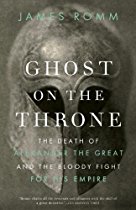
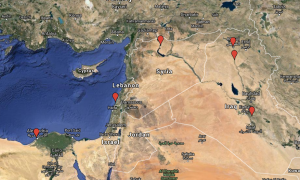
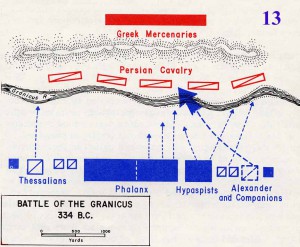


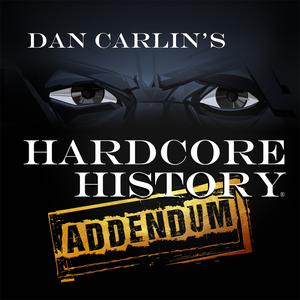 Dan Carlin's Hardcore History: Addendum
Dan Carlin's Hardcore History: Addendum
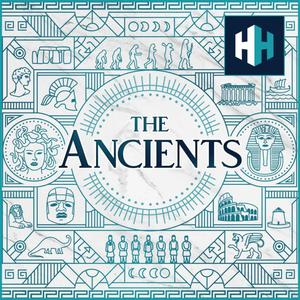 The Ancients
The Ancients
 Alexander the Great
Alexander the Great
 The History of England
The History of England
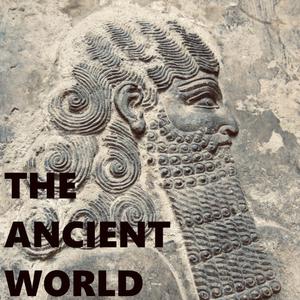 The Ancient World
The Ancient World
 Alexander the Great by Jacob Abbott
Alexander the Great by Jacob Abbott